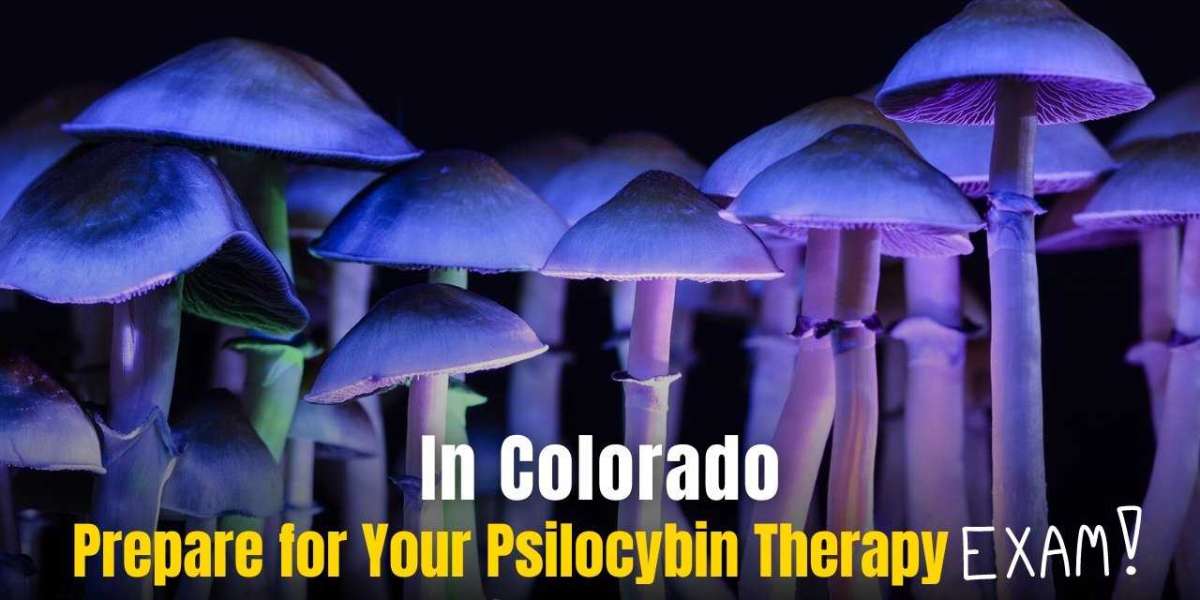As the landscape of mental health treatment continues to evolve, psilocybin therapy has emerged as a promising option for those suffering from various psychological conditions. In Colorado, where psilocybin was legalized for therapeutic use, individuals interested in this form of treatment may be required to undergo an exam to assess their suitability for therapy. This article will guide you through the steps to prepare for your psilocybin therapy exam, ensuring you approach it with the right mindset and knowledge.
Understanding Psilocybin Therapy
Before diving into the preparation, it’s crucial to understand what psilocybin therapy entails. Psilocybin is a naturally occurring psychedelic compound found in certain mushrooms. Research indicates that it can significantly alleviate symptoms of depression, anxiety, PTSD, and other mental health disorders. The therapy is usually conducted in a controlled environment under the supervision of trained professionals who guide individuals through their experience.
1: Know the Legal Landscape
Familiarize yourself with Colorado’s legal framework surrounding psilocybin therapy. In November 2020, voters approved Proposition 122, allowing the regulated medical use of psilocybin. Understanding the specific regulations, including who is eligible for therapy and the credentials of therapists, is essential. You can check the Colorado Department of Regulatory Agencies (DORA) for the latest information on legal requirements and regulations.
2: Assess Your Mental Health History
Before the exam, take some time to reflect on your mental health history. Consider the following:
Current Mental Health Conditions: Be prepared to discuss any existing diagnoses, such as depression, anxiety, or PTSD.
Previous Treatments: Think about any previous therapy or medication you've undergone. What has worked, and what hasn’t?
Triggers and Coping Mechanisms: Identify your personal triggers and how you currently cope with stress or emotional distress.
Being honest and thorough about your mental health history will not only help you during the exam but will also provide the therapist with valuable insight into your needs.
Step 3: Research Psilocybin and Its Effects
Understanding psilocybin and its potential effects on the mind and body is vital. Read reputable sources, including academic articles and guidelines from mental health organizations. Key points to consider include:
Psychoactive Effects: Familiarize yourself with the common effects of psilocybin, which may include changes in perception, mood elevation, and spiritual experiences.
Risks and Benefits: Understand both the potential benefits, such as enhanced emotional clarity and insight, and risks, such as the possibility of anxiety during the experience.
Set and Setting: Research how the context of your experience can influence the outcome. The environment and your mindset play crucial roles in shaping the therapeutic effects of psilocybin.
4: Prepare Questions for Your Therapist
Preparing questions for your therapist can enhance your understanding and comfort during the exam. Consider asking about:
Therapy Process: Inquire about what the therapy sessions will entail, including pre-therapy assessments and post-session integration.
Safety Protocols: Ask about the safety measures in place, both during and after the psilocybin experience.
Therapist Qualifications: Understand the background and training of your therapist. It’s important to know you are in capable hands.
5: Reflect on Your Intentions
Before the exam, take time to reflect on your intentions for seeking psilocybin therapy. Consider journaling your thoughts or discussing them with a trusted friend. Some guiding questions might include:
What do you hope to achieve through therapy?
Are you open to experiencing discomfort during the process?
How do you plan to integrate the experience into your daily life?
Clarifying your intentions can help you articulate your goals during the exam, showcasing your commitment to the therapeutic process.
6: Prioritize Physical and Mental Wellness
Your overall well-being can significantly influence your readiness for psilocybin therapy. In the weeks leading up to your exam:
Maintain a Healthy Lifestyle: Focus on a balanced diet, regular exercise, and adequate sleep. These elements contribute to mental clarity and emotional stability.
Practice Mindfulness and Relaxation: Techniques such as meditation, yoga, or deep-breathing exercises can help reduce anxiety and prepare your mind for the experience.
Avoid Substances: Consider reducing or eliminating alcohol and recreational drugs, as these can impact your mental state and the effectiveness of therapy.
Step 7: Prepare for the Exam Format
Understanding the format of the exam will help you feel more at ease. The exam typically involves:
Clinical Assessment: A trained professional will ask questions about your mental health history, current issues, and expectations for therapy.
Psychological Evaluation: You may undergo standardized assessments to gauge your mental health status and suitability for psilocybin therapy.
Discussion of Risks: Be prepared to discuss the potential risks and side effects of psilocybin therapy and how they can be managed.
Familiarizing yourself with the exam structure can alleviate any anxiety associated with the unknown.
Step 8: Build a Support Network
Having a support system in place can enhance your overall experience. Share your plans with trusted friends or family members who can offer encouragement and understanding. Consider joining support groups or online communities focused on psilocybin therapy to connect with others who are undergoing similar experiences.
Conclusion
Preparing for your psilocybin therapy exam in Colorado involves a multifaceted approach. By understanding the therapy process, reflecting on your mental health history, and fostering a supportive environment, you can enhance your readiness for this transformative experience. As you embark on this journey, remember that the path to healing is unique for everyone, and approaching it with openness and curiosity can lead to profound insights and personal growth. Embrace the opportunity, and prepare to explore the depths of your mind in a safe and supportive setting.









